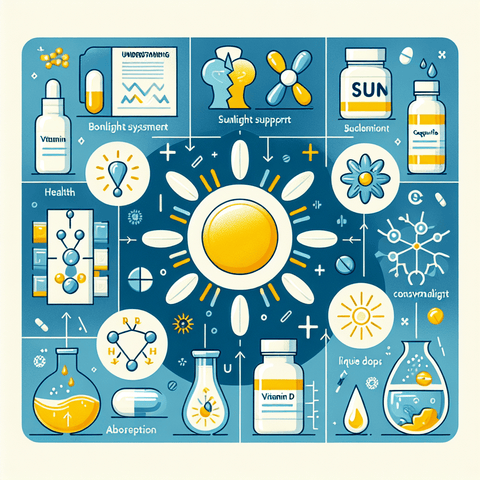Vitamin D, often called the Sunshine Vitamin, is a fat-soluble secosteroid produced in the skin when it is exposed to ultraviolet B (UVB) radiation from sunlight. It can also be obtained through certain fortified products and dietary supplements. In the body, vitamin D is converted into active forms that participate in a variety of physiological processes, and its status is commonly assessed by measuring the blood concentration of 25-hydroxyvitamin D. Top sources of vitamin d include sun exposure as the natural source, fortified products to provide additional intake, and dietary supplements to bridge gaps. The amount of vitamin d you can obtain from sun exposure depends on factors such as how much skin is exposed, the time of day, season, latitude, and individual characteristics like skin tone. Because these factors vary with geography and lifestyle, people may have different opportunities to maintain target levels throughout the year. Tracking your intake and exposure can help you understand how vitamin d fits into your routine. Daily needs for vitamin d differ by age, life stage, and other factors. Many national guidelines for adults suggest around 15 micrograms (600 international units) per day up to age 70, and around 20 micrograms (800 IU) per day for older adults; guidance may differ by country or organization. Because needs can change with location and circumstances, discussing individual targets with a health professional can be helpful. Regular reviews of your status may be recommended because vitamin d status can fluctuate seasonally and with travel. Simple, practical approaches to boosting vitamin d levels include balancing safe sun exposure with other sources, considering fortified products and supplements as part of a plan, and talking with a clinician about testing and dosing if needed. If you choose supplements, following person-specific guidance helps set appropriate amounts and duration. By staying aware of sun, diet, and supplement options, you can develop a routine that supports your vitamin d management over time.






